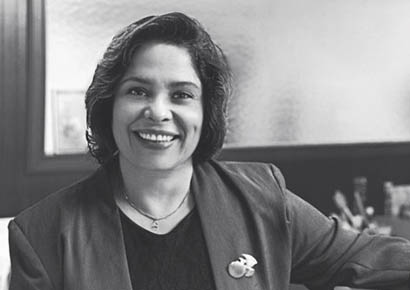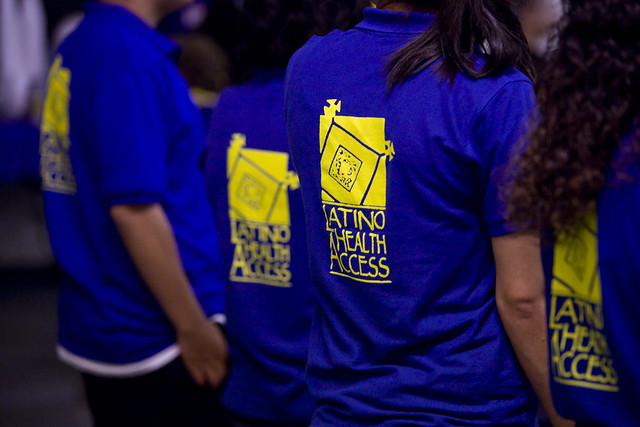Community organizing: The ‘experts’ are already here at home

BakTalk
with Beth-Ann Kozlovich
HONOLULU—Maybe we really do need people from outside of Hawaii to tell us the truth. Compared to past hired messengers, the message of the latest outsider is pretty straightforward. And this time, we didn’t have to shell out the big bucks to be told something deceptively elementary.
“A simple thing like common sense is pretty uncommon these days,” according to Dr. America Bracho. “There was a time in the world where we didn’t have institutions and people took care of each other. And then we created institutions and they excluded us and now institutions don’t know how to engage us and we don’t know how to engage ourselves.”

Bracho is the executive director of Latino Health Access, based in Santa Ana, California. She spoke to an audience representing more than 75 local nonprofits and community groups on Tuesday at the Hawaii State Capitol. The workshop was sponsored free of charge to Hawaii Alliance of Nonprofit Organizations, Hawaii Alliance for Community-Based Economic Development, Hawaii People’s Fund, and the Swayne Family Foundation.
Latino Health Access, the organization Bracho founded in 1993, assists Orange County Latinos with multiple health needs. She created a health education center to help empower Latinos to better care for themselves. Bracho is a physician in her native Venezuela and also holds a masters degree in public health from the University of Michigan. But don’t call her a community organizer.
“I’d rather speak about participation and why participation makes a difference,” Bracho said. “And why ... you tell a mom that by working with her kids, working to be successful as a family to engage them, that she owns her leadership as a mom, she is participating. And when she talks to her neighbor, she is organizing. We need to demystify organizing. It’s getting together with the people you care about and love and doing something. It starts with asking ‘How can I help’ or ‘how can you help me.’ It’s simple.”
It’s a simple concept that conflicts with our “old school” way of thinking, Bracho says. “When you think about community organizing,” she explained, “it’s usually a place where experts come and the community—the common neighbors, the moms and the dads—are not part of the process.”
Intuitively we know this. How many times have you heard that Hawaii government, businesses, and organizations are bringing in an expert or consultant and, in short, have fallen into the “Better from Elsewhere” trap? This is not to discount good ideas that have worked in other places. Sometimes we need the view from the outside to focus our vision. But first, Bracho says we need to redefine an inclusive meaning to the word “expert.”
“The way we see it in our work is that the community members are the community experts,” Bracho says. The people who go college and the university are the technical experts and the people who help us with the daily operations of our office are the administrative experts. We have to work in teams and understand we are all experts.”
Engagement, the buzzword that it has become, is still the goal. And that translates into an informed and informing citizenry. How meaningful that exchange can become creates stakeholdership that cannot be replicated by a talk from an outsider or parachute consultant, despite whatever good information she can share. Bracho is the first to say that when she speaks to groups, she knows they may be thinking what she is doing is “interesting, but the power of community experts reaching the community is that not only do they help their community get better, but they help people believe they can do it as well.”
All external talk aside, the real question each person needs to ask is: “What am I ready for?” The answer, Bracho says, is your entry point.

“What we do is to create mechanisms for participation based on where people are at, not where technical experts are at,” Bracho says. “So people can create a project through a park or a reading corner. And very soon, if you do it right, people are going to start asking why we don’t have this, why don’t we have a voice, why are we the ones with all the liquor stores and no parks, why are we the ones with kids who drop out and the school continues saying they are successful while our kids are not graduating. It’s that enquiry of the why and the why and the why that people start exploring options to make the community better and they part more and more and more.”
It’s neither necessary nor advisable to have everyone doing the same things. It’s far more preferable to let interests dictate actions, Bracho explains. Regardless of what actions someone may take to try to better a community, none should be discounted, compared, or paid lipservice. What may be potentially viewed as a small act can have a huge cumulative impact. The mother who spends a little more time with a child doing homework may turn into the next class representative. From there, Bracho says, she may move to other activities widening her circle of influence.
“You have multiple levels of participation that are moving the agenda, but you are not relying on the ones who can talk to city council,” Bracho says.
This is not some noncompetitive board game where everyone wins. There will be some losses. How members of each community continue to move forward, connect with each other, and engender strength as knowing insiders—and not passively accept the words of well-meaning, credentialed outsiders—is the best long-term strategy to shape better communities, according to Bracho. How fast change happens may be a matter of how many of us in every community are willing to ask that question: “What am I ready for?” And then go do it.
Beth-Ann Kozlovich ask herself that question a lot. Reach her with your answers at [email protected].